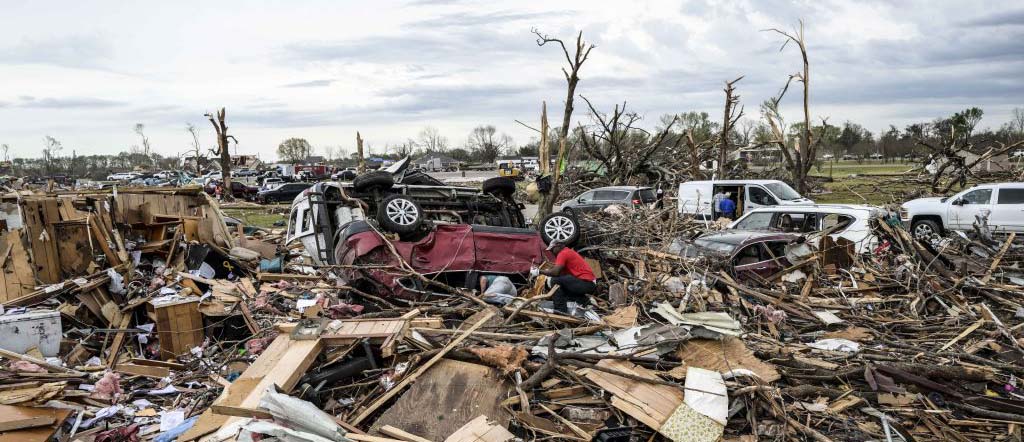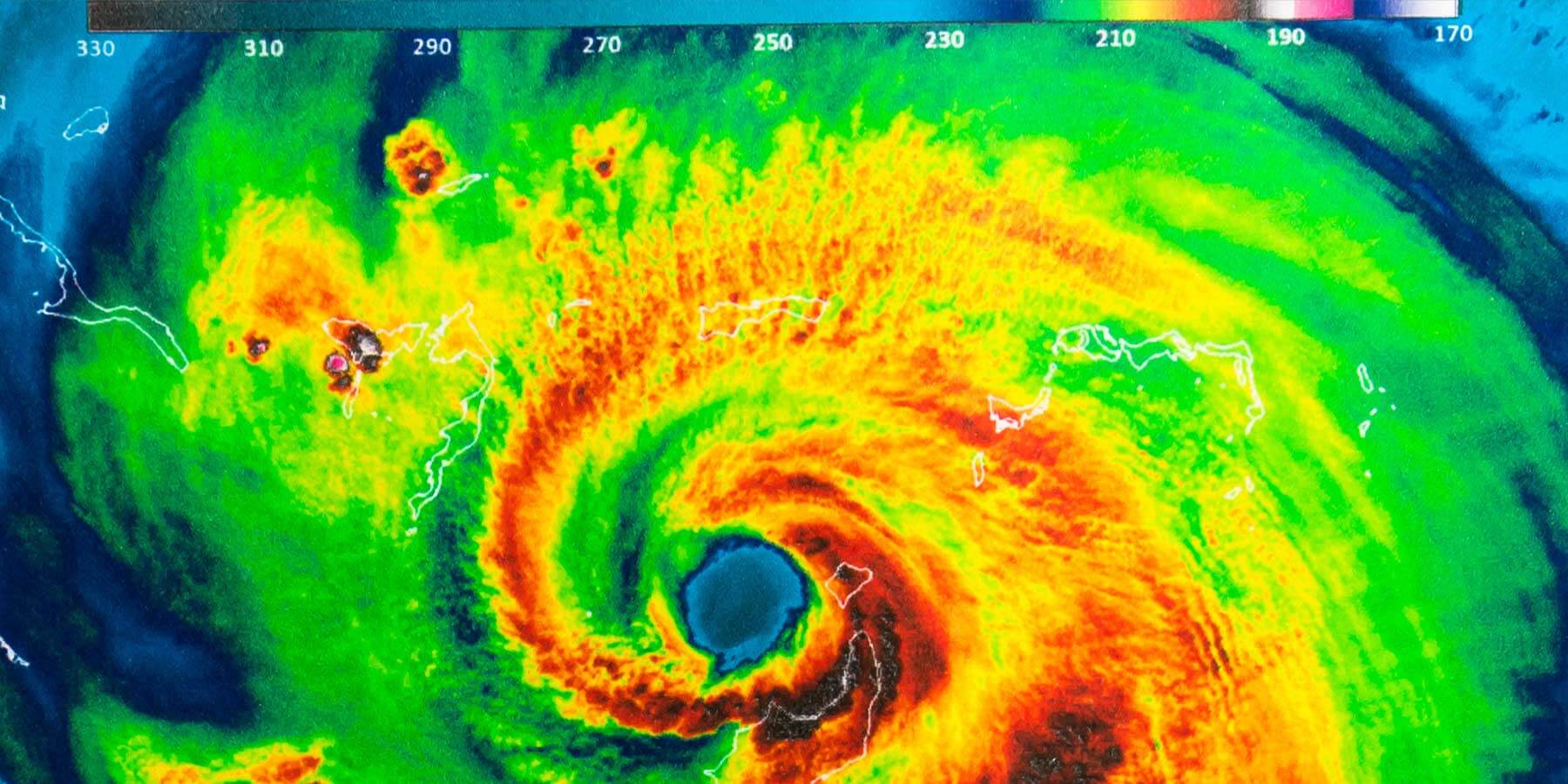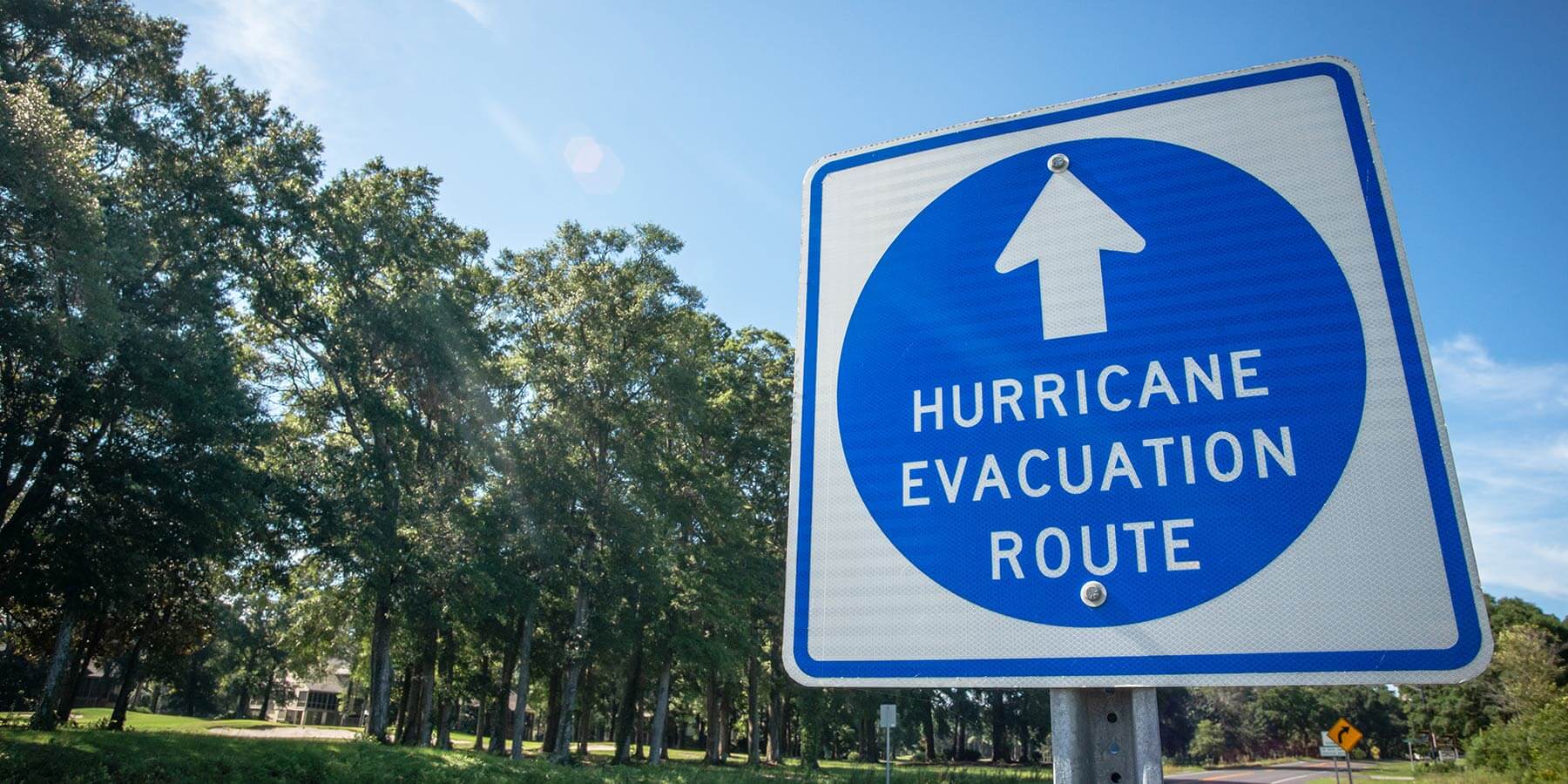Over the weekend, a series of violent storms devastated parts of Mississippi, Alabama and Tennessee, causing massive property losses and unfortunately, loss of dozens of lives. Now, more areas in the Southeast are bracing for another round of intense storms and torrential rain.
Severe storms also struck Georgia Monday morning and as many as 100 homes were damaged, with 30 to 40 “completely destroyed,” Troup County Georgia Emergency Management Director Zachary Steele said in a news conference.
Georgia Gov. Brian Kemp issued a state of emergency order “following the severe storms and tornadoes that struck this morning,” Kemp tweeted. “As we continue to monitor the weather and work with local partners to address damage throughout the day, I ask all Georgians to join us in praying for those impacted.”
“Isolated instances of damaging winds can be expected through early evening with the strongest storms. A tornado cannot be entirely discounted across parts of Georgia/southern South Carolina,” the National Weather Service’s Storm Prediction Center said on Monday, March 27th.
The American Red Cross offers these tips on what to do after a tornado touches down:
- Let friends and family know you are safe. If evacuated, return only when authorities say it is safe to do so.
- Check for injuries. If you are trained in first aid, provide care to persons in need until emergency responders arrive.
- Stay out of damaged buildings.
- Watch out for fallen power lines or broken gas lines and report them to the utility company immediately.
- Watch animals closely and keep them under your direct control.
- Help people who require additional assistance—infants, older adults, those without transportation, people with disabilities, and their caregivers.
- Continue listening to local news or a NOAA Weather Radio for updated information and instructions.
- If someone smells gas or hears a hissing noise, they should open a window, get everyone out of the building immediately and call the gas company or fire department
- Use flashlights, not candles when examining buildings.
Please click here to learn more information about how we assist communities with preparing for, responding to, recovering from, and mitigating emergencies and disasters.



